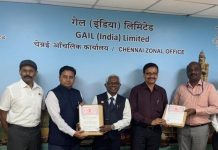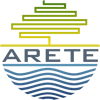The seventh session of the International Solar Alliance (ISA) Assembly was held in New Delhi. India elected as president and France as co-president for a two-year term from 2024 to 2026.
As India secured its presidency without opposition, the spotlight shifted to the competitive race between France and Grenada for the coveted co-presidency position.
The Regions
The assembly elects its president and co-president based on equitable geographic representation.
International Solar Alliance members belong to four regional categories such as Africa, Asia and the Pacific, Europe and Others, and Latin America and the Caribbean.
Rest of the Pack
Ghana and Seychelles have been appointed vice presidents for Africa, showcasing their growing influence and leadership on the continent. Australia and Sri Lanka will represent Asia and the Pacific.
Germany and Italy will serve for Europe and Others, and Grenada and Suriname will represent Latin America and the Caribbean.
Initiatives and Appointments
Ministers from 29 countries met at the ISA Assembly to discuss key initiatives on energy access, security, and transition. These discussions aimed to address pressing global challenges.
The assembly appointed Ashish Khanna from India as its third director-general. Other candidates included Wisdom Ahiataku-Togobo from Ghana and Gosaye Mengistie Abayneh from Ethiopia. The outgoing Director-General, Dr. Ajay Mathur, will complete his term on March 14, 2025. Under his leadership, the ISA advanced numerous projects and innovations to promote solar energy.
The Organisation
The International Solar Alliance (ISA) is collaborating with governments worldwide to improve global energy access and security.
The organization aims to mobilize $1 trillion in solar investments by 2030 and also focusing on reducing technology and financing costs.
Collaborations
The ISA collaborates with multilateral development banks, financial institutions, and various organizations to provide cost-effective solar energy solutions.
As reported by pv-magazine.com, the collaboration focuses on supporting the least-developed countries, small island developing states, and vulnerable regions.
































